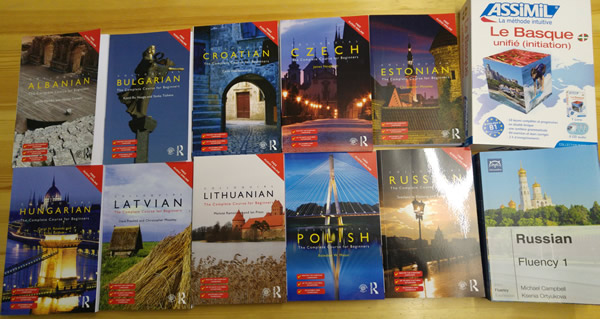Recently I have acquired quite a few new language courses: as a sponsor of the Polyglot Conference in New York I received 10 new Colloquial language courses in Albanian, Bulgarian, Croatian, Czech, Estonian, Hungarian, Latvian, Lithuanian, Polish and Russian. I also bought a Glossika Russian course with the special offer given to conference participants, and bought a Basque course from Assimil with affiliate commission from Amazon France.

I learnt a little Hungarian many years ago, and am currently working on Czech and Russian, but haven’t studied any of the other languages before. I’d love to know at least the basics of all of them, though have no particular need or desire to learn them at the moment. Also, I already have courses in a number of languages that I have only glanced at so far – Arabic, Norwegian, Swedish, Scots and Cornish.
Do you sometimes get carried away with acquiring language courses and other materials?
Do you think you will get round to learn all those languages one day?